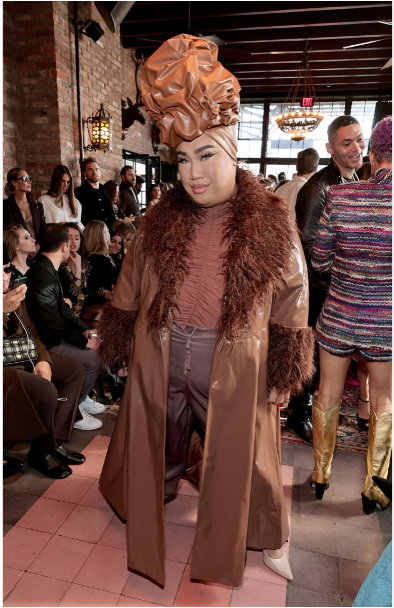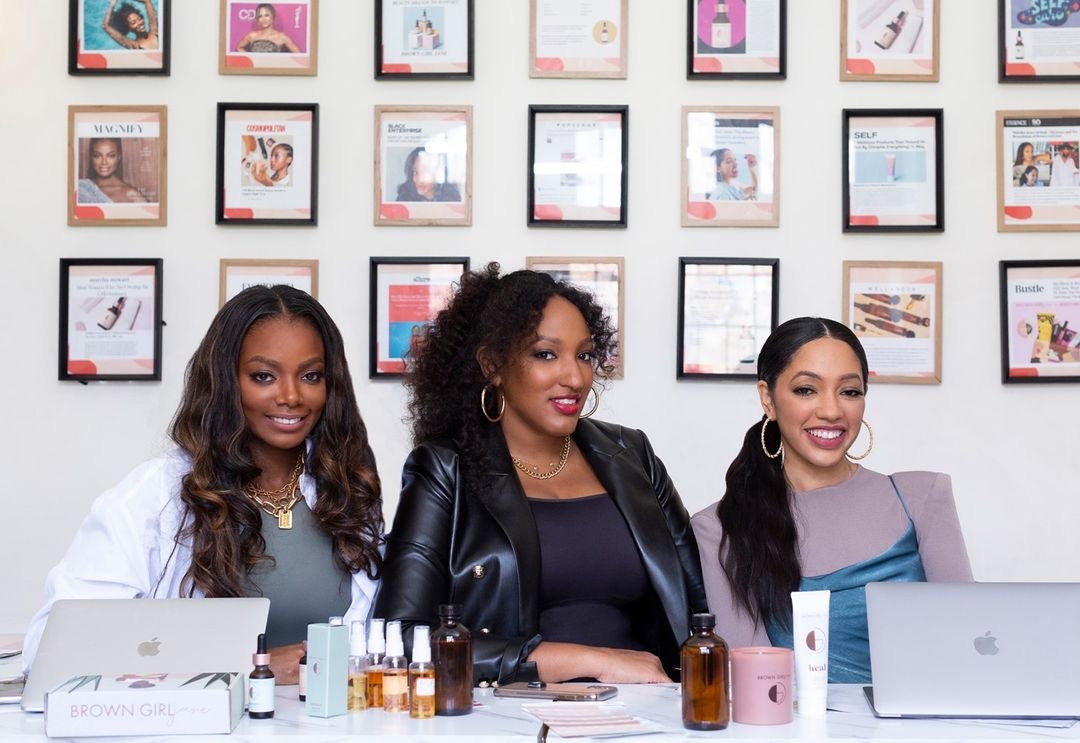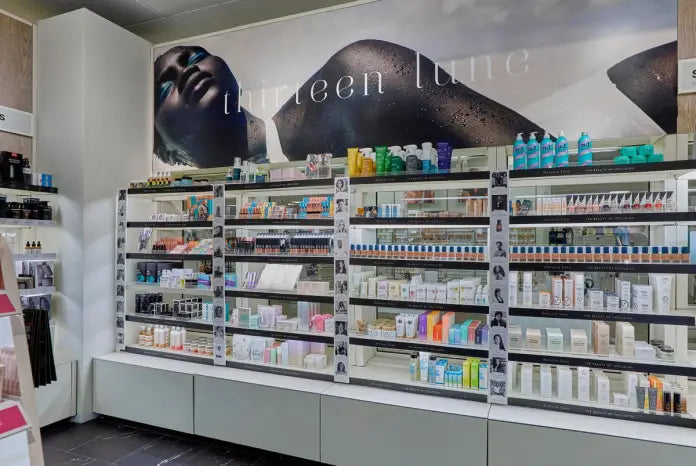7 FEARLESS BLACK WOMEN WHO CHANGED BEAUTY FOREVER

Recognizing the contribution that our ancestors made to get us where we are today is a huge part of Black History Month. Without their impact, especially in the beauty industry, we would not have seen changes in the unrealistic representation of Black women in the beauty industry. However, several figures from the past decade made beauty more inclusive for Black women from all backgrounds.
As Black History Month begins, a few Black women have revolutionized the beauty industry that you should know about – from past to present.
Madam C.J. Walker
It is impossible to talk about Black women in the beauty industry without mentioning Madam C.J. Walker, born Sarah Breedlove. Recognized as the first Black female millionaire, Walker was born of humble beginnings. To get her start, she worked alongside her brothers, who were barbers, to learn the craft of caring for natural hair. However, problems with her hair prompted her to create what was known as “Madam Walker’s Wonderful Hair Grower.” Not only did the product work, but it worked so well that it became an instant hit among women in her area.
She quickly rose in status because of her business and her philanthropic nature. She frequently donated back to her community for the anti-lynching movement, local YMCAs, and more. She also was a prominent socialite in the Harlem neighborhood and culture. By the time of her death in 1919, she had not only single-handedly changed the way Black women were exposed to hair products but the beauty industry in general.
Grace Jones
Grace Jones is a singer, songwriter, and actress. She rose to popularity during the 1980s when she released several hit songs like “Slave to the Rhythm” and landed noteworthy acting gigs in popular movies like “A View to Kill.” However, Jones is more than just those things. She also played a significant role in shaping beauty culture and bending the lines of what was seen as socially “acceptable” according to the standards of beauty at the time.

She flirted with social boundaries with her androgynous style and toned muscles – two things that were not seen as feminine in the 80s, especially for such a famous star. She has even been quoted by Elle about this, stating that she “would not be a model by today’s beauty standards.” Because of her willingness to break the mold and go against the grain, she set the scene for future stars and everyday women to express themselves in a way they saw fit.
Iman
Iman Abdulmajid is a model, actress, and entrepreneur. She started in the early 1970s when she began modeling for Vogue. Her first campaign was in 1976 with the magazine, springboarding her career and leading her to work with some of the most famous designers and fashion brands globally, such as Versace, Calvin Klein, and Yves Saint Laurent.

However, throughout her many years of modeling for so many big brands, she repeatedly struggled to get the correct foundation to match her skin. She started creating her makeup and foundation colors, honing the skills she would need later when she developed her makeup line. In 1994, she started selling the makeup she had perfected for so many years. The business grew exponentially, becoming one of the largest Black-owned beauty brands in existence. Because of this, she is known for creating a more inclusive space for Black women in the beauty industry. She has received many accolades, including a lifetime achievement award from the Council of Fashion Designers of America.
Pat McGrath
Pat McGrath is a British makeup artist and designer. Born in 1965, she grew up in Northampton, England, and was raised by her mother, a dressmaker. When McGrath first decided she wanted to go into the beauty industry, she did not have any sort of formal training in makeup – only a single art class from Northampton University. She got her training through personal exploration and growing her business, working with fashion and beauty headers like Giorgio Armani, Alexander McQueen, John Galliano, and even Proctor & Gamble.

She created her beauty line called “Pat McGrath Labs,” an immense success. It has since become a billion-dollar company and has a global reach. She is one of the first Black women to have such space in the cosmetics industry. Because of her notoriety, she has been given several awards – including the honor of becoming a British dame. In 2019, she was also listed as one of the 100 most influential people for TIME magazine.
Rihanna
Rihanna, a singer and songwriter, has followed in the footsteps of her predecessors in the beauty industry, completely revolutionizing the way Black women are able to access inclusive products. In 2017, she launched Fenty Beauty, which was composed of all sorts of makeup products made to work with any skin tone – including a line of foundation that had over 40 shades. Within a few months, Fenty had landed a spot on Time magazine’s list of 25 Best Inventions of 2017.
After being on the market for several years, it became clear Rihanna’s influence on the beauty industry was exponential. Brands started to notice how important it was to have inclusive products in their line, expanding the shades and colors their items were available in. The brand has now grown to include many more products, along with a skincare line made for all ages and genders, making it one (if not the most) inclusive brands on the market.

In an interview with Time, Rihanna recalled her amazement at the reaction to her products – showing the massive impact her products have had on women of color, specifically: “I could have never anticipated the emotional connection that women are having with the products and the brand as a whole. Some are finding their shade of foundation for the first time, getting emotional at the counter. That’s something I will never get over.”
Sharon Chuter
Sharon Chuter is an entrepreneur from Nigeria who started her makeup journey in 2019 after leaving her corporate job to create her makeup line, Uoma by Sharon C.
Chuter has been involved in many pro-inclusivity movements such as Pull Up For Change and Make it Black, both of which encourage business owners and executives to make their companies more inclusive and support buying from Black-owned businesses. Her ever-growing experience in the advocacy world shapes how she runs her own business. In an interview with Shondaland, she states, “Beauty can never be the same again. The level of transparency and what customers are expecting from companies has expanded.”

Like many women who have trailblazed the beauty industry before her, she wants to ensure that Black women can find makeup in a shade that matches their skin tone. She also hopes her line makes women “fall in love with themselves,” as she told Shondaland. The name of her brand represents this, as Uoma is the Nigerian word for beautiful.
Through her work in entrepreneurship and advocacy, Chuter is changing how the average Black woman views herself and how she can feel beautiful. Her brand is unique in that it contributes to the era of creating products that reflect the true spectrum of women that the beauty industry is shifting toward, rather than simply creating products to go on a shelf based on what society says is “beautiful.”
Danessa Myricks

Referring to herself as an “accidental makeup artist,” Danessa Myricks is an entrepreneur, makeup artist, and photographer. However, Myricks didn’t start out wanting to own her own beauty business. She worked at a magazine for several years until it shut down, leaving her with an ultimatum to pursue her passion for breaking into the beauty industry or finding another job. Like many successful entrepreneurs, she jumped headfirst into pursuing a career in makeup. Although her journey started with many unpaid clients, she quickly networked with those from her past to grow her business into today’s successful one.
Myricks worked with many well-known companies in the process, though, including helping Benefit develop their “iconic” brow collection in 2016. She told Allure that experiences like those helped her realize that she wanted to have a business that did not limit her creativity.
She also credits hard work and failure as two of the main things that helped her achieve success: “If it weren’t for me being so burnt out and tired from being a freelance makeup artist and consultant, I would have never taken that position at Benefit. If it wasn’t for that experience, that on-the-job training, I would not ever have been prepared to develop my own products. And if it wasn’t for me being so horrible as a makeup artist after reintroducing myself to the world again, I would have never picked up a camera, and I would have never seen makeup the way I see it now.”
Now, you can find Myricks’ products in many big-box retailers, along with her photography and makeup artistry in some of the most well-known magazines in the country.
From the influence of women like Madam C.J. Walker to Danessa Myricks, the beauty industry has become more inclusive over the past 100 years. So, this Black History Month, take a moment to purchase products from a Black-owned beauty line. We’ve got plenty of options.
By: Morgan Bailee Boggess




Comments